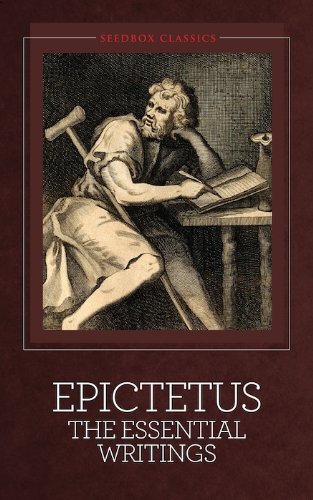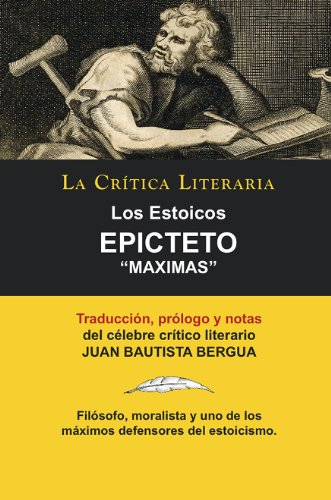Sublime
An inspiration engine for ideas




Happiness is possible even in the midst of the most terrible sufferings. The wise man can be happy even if he lives in obscurity, is underappreciated, or finds himself exiled. Neither blindness nor deafness can prevent the wise man
Quintus Curtius • Tusculan Disputations
Los Estoicos: Epicteto: Maximas; Colección La Crítica Literaria por el célebre crítico literario Juan Bautista Bergua, Ediciones Ibéricas
amazon.com
Stoicism
Tony Elgin • 4 cards